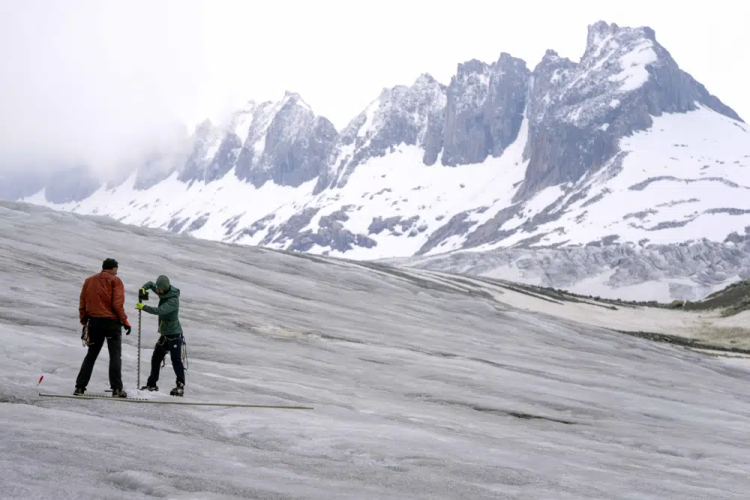BERLIN (AP) — A bill aimed at implementing new climate measures to effectively reduce greenhouse gas emissions in Switzerland has received majority support from Swiss citizens in a recent vote.
According to the final results announced by public broadcaster SRF, 59.1% of voters favored the bill, while 40.9% voted against it.
The referendum was initiated in response to concerns raised by scientists and environmentalists about the rapid melting of Switzerland’s iconic glaciers.
Initially, campaigners proposed more ambitious measures, but later aligned with a government plan that mandates Switzerland to achieve “net zero” emissions by 2050. Additionally, over 3 billion Swiss francs ($3.357 billion) will be allocated to assist companies and homeowners in transitioning away from fossil fuels.
The nationalist Swiss People’s Party, which called for the popular vote, had argued that the proposed measures would result in increased electricity prices.
BERLIN (AP) — The approval of the bill to introduce new climate measures in Switzerland has been welcomed by supporters who argue that the country is already experiencing the adverse effects of global warming, particularly on its renowned glaciers.
Urs Bieri from the GFS Bern Institute expressed satisfaction on behalf of the supporters, stating, “The supporters have reason to rejoice.” However, he acknowledged that not everyone was in favor of the law, as concerns about costs influenced many “no” votes.
Greenpeace Switzerland celebrated the outcome of the referendum, emphasizing that the legislation’s success would provide greater certainty for future planning and enable the country to transition away from fossil fuels. Georg Klingler, a climate and energy expert at Greenpeace Switzerland, highlighted the citizens’ commitment to limit global warming and protect glaciers, water reserves, agriculture, and prosperity.
The alarming rate of melting experienced by Swiss glaciers, with a record loss of over 6% in volume last year, has deeply concerned scientists. Previously, a loss of 2% would have been considered extreme. Glaciologist Matthias Huss from the Swiss Institute for Technology in Zurich has been using social media to share striking images of retreating glaciers and melting permafrost-induced rockslides, aiming to draw attention to the significant changes unfolding in the Alps.









